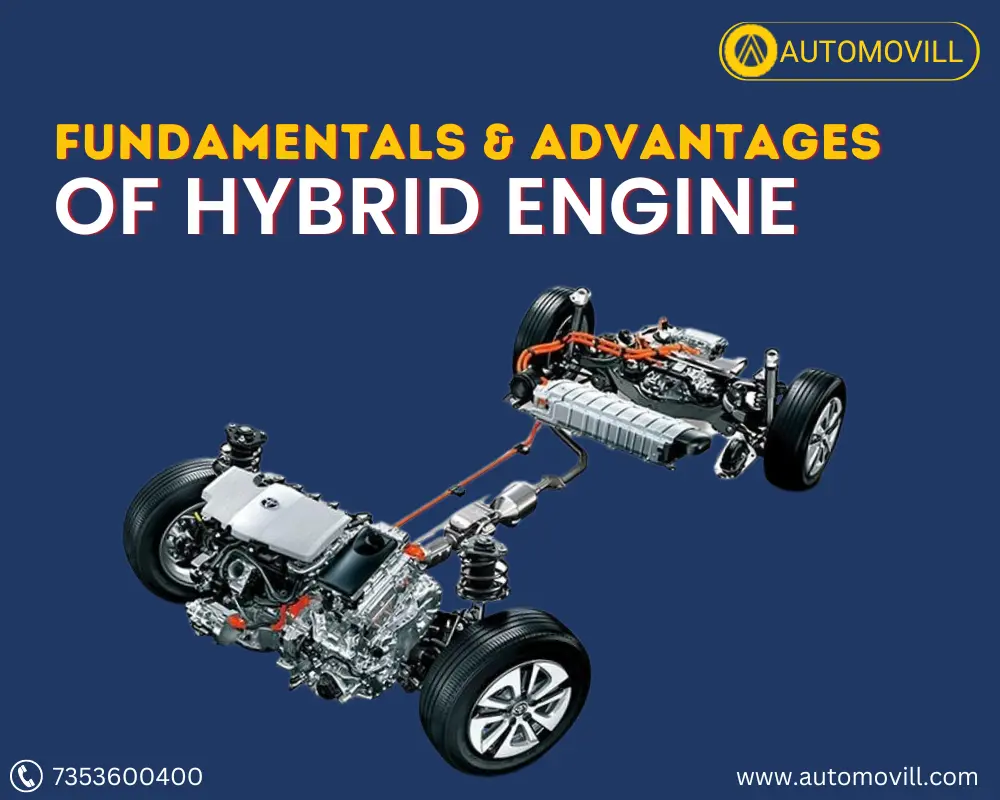
Hybrid engines are a type of powertrain that combines an internal combustion engine (ICE) with one or more electric motors. The basic principle of hybrid engines is to use both the ICE and the electric motor to propel the vehicle, with the goal of improving fuel efficiency and reducing emissions.
A hybrid engine works by combining an ICE with one or more electric motors. The electric motor provides extra power and can operate in electric-only mode, while the ICE is the main power source and can recharge the battery pack.
The transmission and control system manages the power from both sources, and regenerative braking helps to recharge the battery pack. By using both the ICE and electric motor to propel the vehicle, hybrid engines can achieve higher fuel efficiency and reduce emissions.
Fundamentals
- Regenerative braking: One of the key features of hybrid engines is regenerative braking. When the brakes are applied, the electric motor acts as a generator, converting the kinetic energy of the vehicle into electrical energy, which is stored in the battery. This energy can then be used to power the electric motor and reduce the load on the ICE.
- Electric-only driving: Many hybrid engines also have the ability to drive in electric-only mode at low speeds or in stop-and-go traffic. This can reduce emissions and improve fuel efficiency, especially in urban driving conditions.
- Engine start-stop: Another feature of hybrid engines is engine start-stop, where the ICE is turned off when the vehicle is stopped or idling. This can save fuel and reduce emissions, especially in heavy traffic.
Advantages:
- Improved fuel efficiency: One of the main benefits of hybrid engines is improved fuel efficiency. By using both the ICE and electric motor to propel the vehicle, hybrid engines can achieve higher miles per gallon (MPG) than traditional gasoline engines. This can result in lower fuel costs and reduced dependence on fossil fuels.
- Reduced emissions: Hybrid engines also produce fewer emissions than traditional gasoline engines. The electric motor can help reduce the load on the ICE, which means that it produces less pollution. In addition, some hybrid engines can drive in electric-only mode, producing zero emissions.
- Increased power and performance: Hybrid engines can also provide increased power and performance compared to traditional gasoline engines. The electric motor can provide extra torque, which can improve acceleration and overall performance.
- Quieter operation: Hybrid engines are also quieter than traditional gasoline engines. When the vehicle is operating in electric-only mode, it produces almost no noise, and even when the ICE is running, it is often quieter than a traditional engine.
- Government incentives: Many governments around the world offer incentives to encourage people to buy hybrid vehicles. These can include tax credits, rebates, or other financial incentives that can make hybrid vehicles more affordable.
Overall, hybrid engines offer many benefits over traditional gasoline engines, including improved fuel efficiency, reduced emissions, increased power and performance, and quieter operation. While they may be more expensive to purchase than traditional vehicles, the long-term savings in fuel costs and potential government incentives can make them an attractive option for many drivers.
